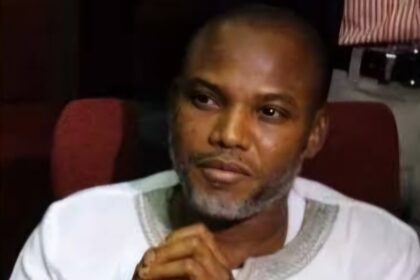Some top forensic experts in Nigeria have rubbished the photoshopped image of Governor Dapo Abiodun doing the rounds. According to one of them, Dr. Abdulhameed Adedeji, has dismissed as a poor hatchet job, the photograph circulating on social media purportedly showing that the Ogun State governor, Prince Dapo Abiodun, was arrested for criminal activities in the United States in the late 80s.
Adedeji, who said photoshopped images could be easily detected through zooming in, reversed text, missing reflections, bad perspective and by checking its edges, among others, wondered why it would take a badly photoshopped image to prove that anyone has a pending criminal case when the country is known for its meticulous record-keeping system.
He said that apart from the fact that checks in the office of the District Attorney and in courts at the purported jurisdictions of the crime put a lie to the claims of Abiodun’s detractors, the circulating image was nothing but concocted documents superimposed on Governor Abiodun’s younger picture, probably taken from his old passport.
He challenged the authors of the picture to show evidence that the United States deliberately blurs the neck region of any suspect, making the head to look like a caricature, as done by the authors of the photoshop in their hasty bid to purvey falsehood.
Reiterating that the picture was a photoshop apparently done by the governor’s political adversary, Adedeji said a close look at the picture reveals two lines on the right, one for the passport and one for the other line, while a finger is clearly visible on the left.
He added: “This kind of photoshop is so crude that no self-respecting media outfit can publish it, and it cannot be presented as part of the evidence pool in any court of law.
“I am inclined to believe the claim that it is the handiwork of political adversaries who see that the governor is doing so well and thought of what they could do to discredit him, following their woeful outing at the last election. It is so bad that it will cause considerable embarrassment to anyone who presents it as ‘evidence’ in a court of law.”
Adedeji, who admitted that there were different software to manipulate photos, said a simple click on a photograph could give revealing information on when it was actually taken and whether or not it is an original document.
“The image is the outcome of crude superimposition on a photograph. It should be completely disregarded,” he said



